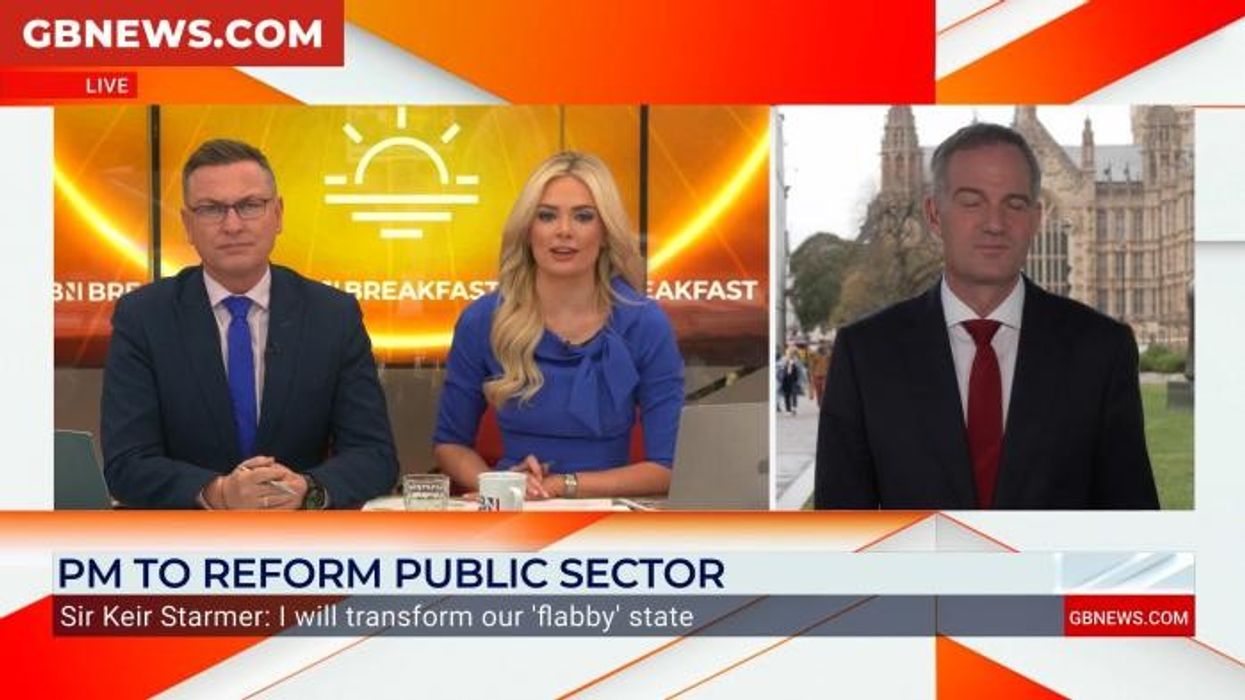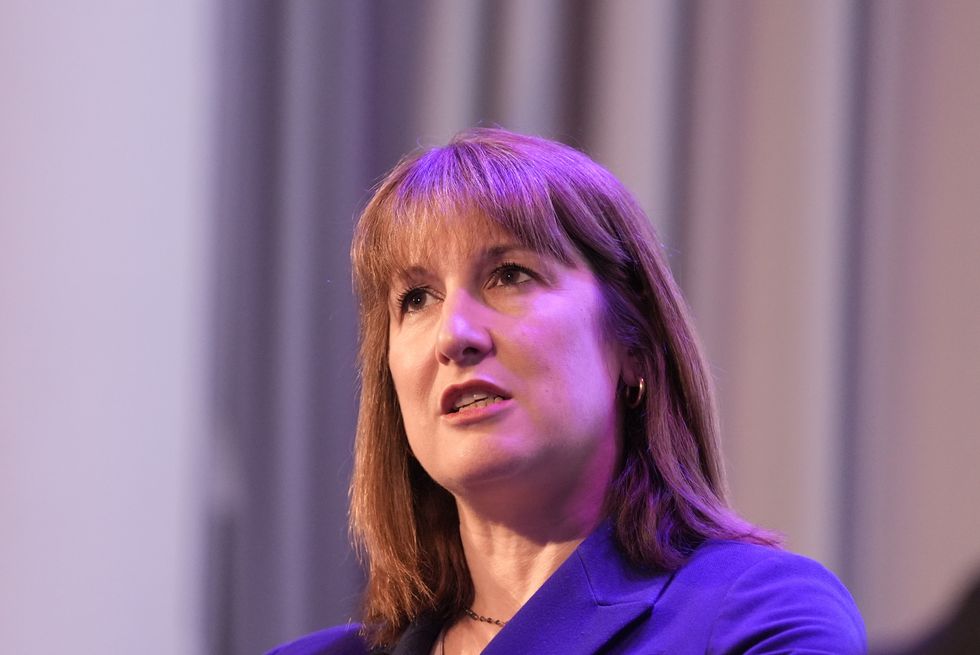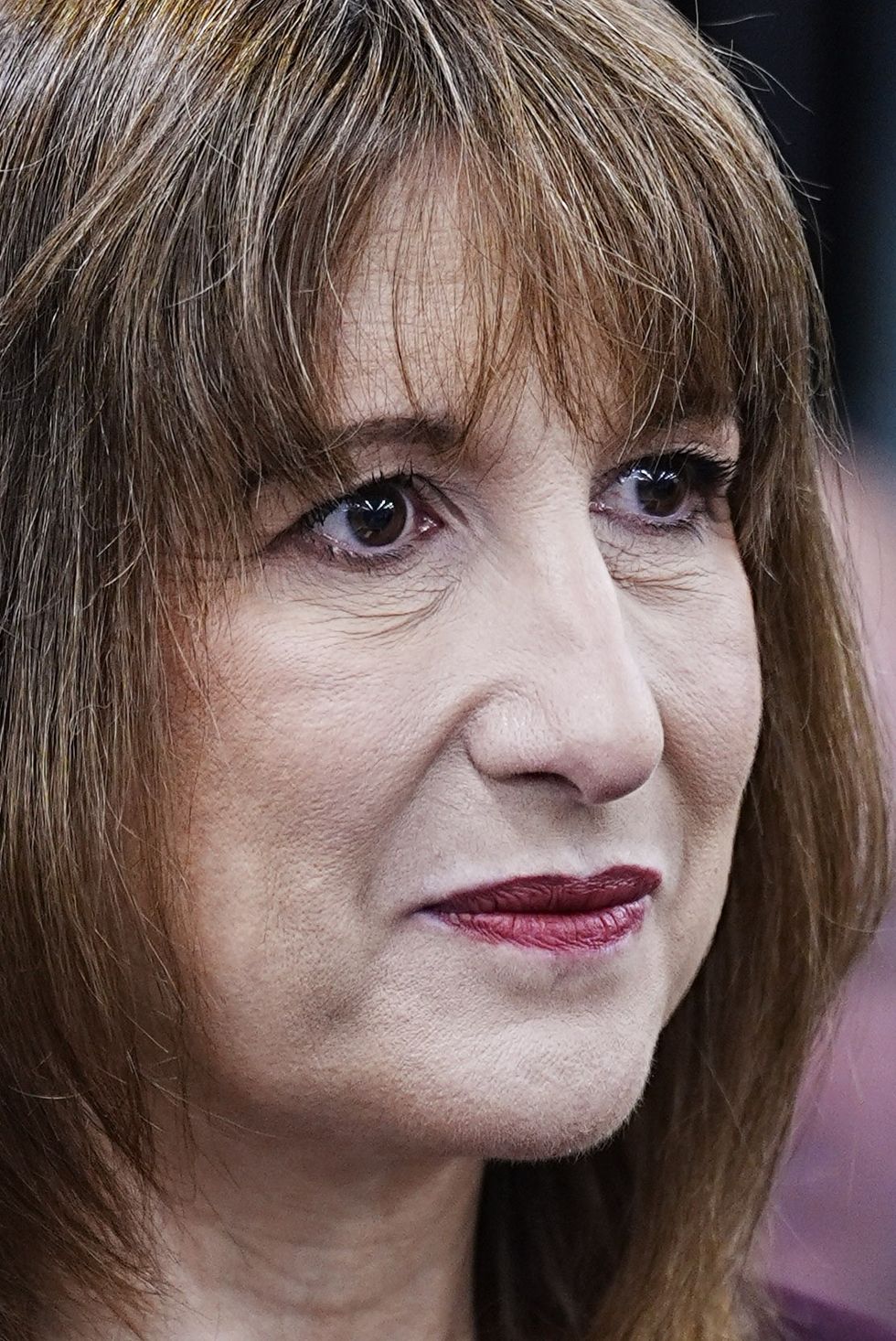EXPOSED: Rachel Reeves's £86 BILLION science and tech boost torn apart in savage four-point takedown

Secretary of State for Science, Innovation and Technology Peter Kyle MP on Labour’s plans to reform the public sector to ‘transform it for a digital age’ |
GB News

Labour’s announcement has been branded 'misleading'
Don't Miss
Most Read
Trending on GB News
Labour’s “transformative” £86billion boost to science and technology expected in the spending review has been torn apart by a leading economist.
On Sunday, Chancellor Rachel Reeves and the Department for Science, Innovation and Technology unveiled a seemingly massive spending boost to help “turbocharge the economy” and allow regions to “take cutting-edge research into their own hands”.
According to Reeves, the “bumper funding package” could be used to explore “new drug treatments, longer-lasting batteries, and new AI breakthroughs”.
In addition, the MP for Leeds West and Pudsey claims the funding will help drive new jobs and drive economic growth.
However, Julian Jessop, an economics fellow at the Institute of Economic Affairs and writer of the Plain-speaking Economics blog, has ripped apart the announcement by asking just four key questions.
Drawing criticism to the funding package, Jessop wrote on X: “More baloney - this is a *freeze* on R&D spending in real terms - but we'll be seeing a lot more of these claims in the spending review.”
LATEST DEVELOPMENTS:
Rachel Reeves's £86 BILLION science and tech boost torn apart with just 4 key questions
|PA
What does it cover?
Jessop’s first question draws attention to what specifically the money will be spent on.
The economist points out that although it sounds good on the surface, Labour fails to pinpoint specific areas where the money will reach.
“The '£86 billion' lumps together any Government spending that could be described as 'research and innovation', but it mainly covers UK Research and Innovation (UKRI), higher education funding bodies, and Government departments.”
Over what period?
Jessop’s next question dives into Labour’s headline-grabbing £86billion figure, which the party itself acknowledges is the total amount being spent over its Government.
“The '£86 billion' is the total over *four* years,” Jessop writes.
“The annual spend is more meaningful - and this would be £22.5 billion in 2029-30…”

Science, Innovation and Technology Secretary Peter Kyle
|PA
Is this in cash or real terms?
Jessop’s third question asks a fundamental question about the nature of the package.
“These are cash figures, so take no account of the impact of inflation,” Jessop points out, meaning Labour’s funding risks being eroded in the coming years."
He continued: “On this basis, the Government is (almost) always spending 'record amounts', on everything…”
Continuing to dissect the package, ITV’s Robert Peston added: “Between this financial year and 2029/30, there will be an increase in research funding of just 3 per cent, after adjusting for inflation.
“That is not three per cent every year. It is three per cent in 2029/30 compared with 2025/26.”
How does this compare to previous spending?
Jessop’s last question is arguably the most important.
“This is the killer question - especially if the Government is claiming the new spending will 'turbocharge' growth…” Jessop writes.
“In reality, the Government had already allocated £20.4billion to R&D in 2024-25.
“So the £22.5billion by 2029-30 is only a 10 per cent increase in cash terms, and essentially flat in real terms.
“R&D spending would therefore be falling as a share of GDP, making a mockery of claims that this would be a 'transformative boost'.”

Labour’s announcement has been branded 'misleading'
|Supplied/Gov.uk
In summation, Jessop wrote: “P.S. What's really silly about this is that the Labour Government could be more honest about this and still have a positive story to tell ('despite the pressure on the public finances we have protected the R&D budget...').
“But, no, they have to come up with guff like this…”
Jessop’s analysis was echoed by Peston, who also suggested Labour’s announcement was “misleading”.
He wrote on X: “The Treasury is doing something that it routinely does, but is a terrible habit, of disguising what is happening to the flow of funds, by publishing a mind-bogglingly large number for the stock of money over a very long time period.”
He added: “Research funding will almost inevitably fall as a share of national income or GDP on the basis of this settlement.
“Ministers, including the PM, routinely claim they want the UK to be at the cutting edge of artificial intelligence, life sciences and so on, but their actions contradict their words.”

Rachel Reeves will unveil her spending review on Wednesday
|PA
Labour has made clear that every £1 invested in R&D generates up to £7 in benefits for the UK.
Speaking of the announcement, Reeves said: “Britain is the home of science and technology.
“Through the Plan for Change, we are investing in Britain’s renewal to create jobs, protect our security against foreign threats and make working families better off.”
Science and Technology Secretary, Peter Kyle, added: “R&D is the very foundation of the breakthroughs that make our lives easier and healthier – from new medicines enabling us to live longer, more fulfilled lives to developments in AI giving us time back, from easing our train journeys through to creating the technology we need to protect our planet from climate change.
“Incredible and ambitious research goes on in every corner of our country, from Liverpool to Inverness, Swansea to Belfast, which is why empowering regions to harness local expertise and skills for all of our benefit is at the heart of this new funding – helping to deliver the economic growth at the centre of our Plan for Change.”
More From GB News










